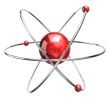Five countries join Russia in its new mega-collider project
 Belarus, Bulgaria, Germany, Kazakhstan and Ukraine have announced plans to join Russia in its NICA heavy ion collider project in Dubna outside Moscow.
Belarus, Bulgaria, Germany, Kazakhstan and Ukraine have announced plans to join Russia in its NICA heavy ion collider project in Dubna outside Moscow.Belarus, Bulgaria, Germany, Kazakhstan and Ukraine have announced plans to join Russia in its NICA heavy ion collider project in Dubna some 130km north of Moscow. The five countries signed a protocol of intention last Thursday, Russian news agency RIA Novosti reported. In an exchange with RIA Academician Viktor Matveyev, the director of the United Institute for Nuclear Research (UINR) developing the new collider, emphasized that it was not only about financial involvement but also about ?in-kind contribution with equipment and components and about participation of experts.? A collaboration agreement has been inked, inter alia, with the Helmholtz Association of German Research Centers. The NICA collider (stands for ?Nuclotron-based Ion Collider fAcility?) is being created using the existing Nuclotron superconducting accelerator that UINR launched back in 1993. The new Dubna collider will be studying the transition of nuclear matter in extreme conditions into a new state referred to in physics as quark-gluon matter...
Похожее
Russia, Belarus and Kazakhstan set up interstate high-tech center
Belarus offered Skolkovo projects for collaboration
Cosmetics business incubator to open in Moscow
Rusnano?s nanotech centers to push thin-film coating project
Next gen diamond production technology unveiled outside Moscow
Russian Venture Company to help innovation in Russia?s South